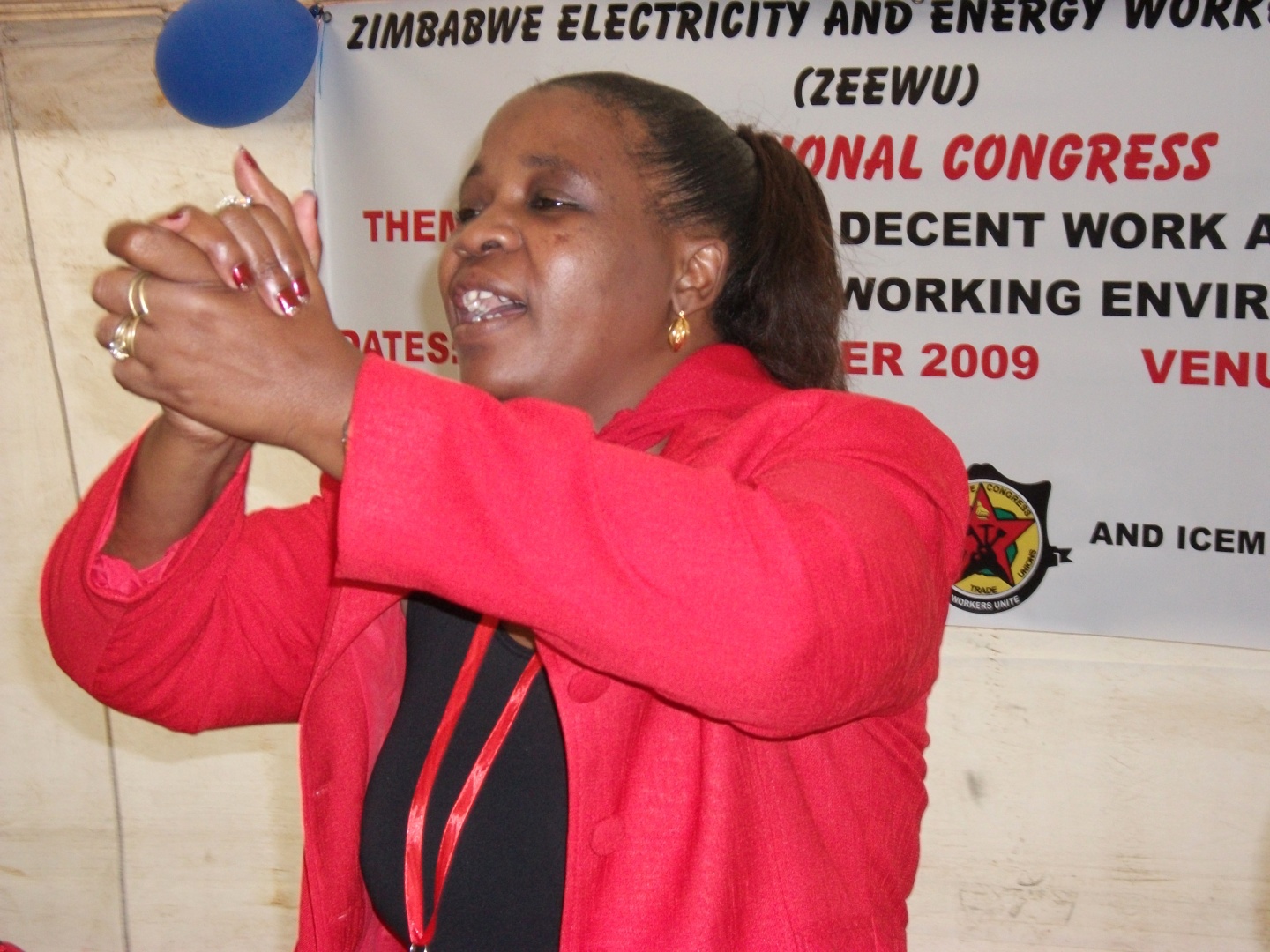27 November, 2013There can be no doubt that Angeline Chitambo, President of the Zimbabwe Energy Workers Union (ZEWU) and IndustriALL Global Union Executive Committee member, is a woman of great strength. It has been a tough year for her but she has stood her ground in the face of blatant worker and trade union rights violations by the state owned Zimbabwe Electricity Supply Authority (ZESA).
PROFILE
COUNTRY: Zimbabwe
UNION: Zimbabwe Energy Workers Union (ZEWU)
Text: Aisha Bahadur
Photo: IndustriALL
It all started when ZESA refused to comply with an arbitration ruling to implement the collective bargaining agreement signed off by the company on wage increases for 2012. ZESA suspended 135 workers, including Angeline and other union leaders for allegedly threatening strike action. ZESA then tried to use the reinstatement of the suspended workers as leverage to have the union agree to abandon the collective bargaining agreement, but ZEWU remained resolute.
After a long battle all of the suspended workers were reinstated except for Angeline, who was dismissed.
From the start of this we were not alone and now when it is just me left out in the cold, IndustriALL continues to stand by me,
says Angeline.
I never expected that I would get such support. The initiative taken by IndustriALL to help me and my union during this time has given me strength and courage to keep fighting.
ZEWU took the matter to labour court, which ruled that the charges against Angeline were unfounded and ordered her reinstatement. ZESA refuses to comply with the ruling, seeking to settle the matter by paying her to leave voluntarily.
Angeline, who has worked at ZESA for more than 26 years and served as Vice President of ZEWU from 2000 and then as its President from 2006, interprets the attempt to remove her as a move to undermine the union that has grown into a vibrant worker driven organization under her leadership.
They see me as a threat because I have been pushing forward workers’ issues but I can’t leave like this.
She adds with a laugh,
I have said that I will accept being pushed out if they honour the 2012 collective bargaining agreement.
Angeline points out that in 2006 ZESA tried to violate the collective bargaining agreement but the difference was the response from workers.
We had the biggest strike that Zesa has ever faced, it was considered illegal because we are categorised as essential services workers and denied the right to strike, but everybody participated and nobody could be victimised.
So what has changed? Angeline speaks of the demobilization of workers through state repression. A particular problem is the restrictions on gatherings that require police clearance. Employers use victimization to manipulate workers, resulting in a decline of worker ideology.
Workers have an ‘each man for himself and God for all’ attitude. Without unity amongst workers, the labour movement is as good as dead in Zimbabwe,
Angeline says.
This has severely undermined the power balance in industrial relations, leaving unions without the ability to mobilize workers on their demands.
Again in 2013, ZEWU and ZESA are unable to reach an agreement in the collective bargaining. ZEWU wants a wage increase in 2013 to be applied to wages that include the gains won in 2012. With limited options available to the union to exert pressure, once again a legal route through arbitration must be pursued.
Through the challenges I have faced in the last year, I have come to appreciate the importance of unity and solidarity. We have come together as unions from diverse sectors at a global level, but we can achieve so much more if we build unity amongst ourselves as affiliates at a country level. This is what I pledge to champion in IndustriALL, this will be my thanks for the support I have received,
concludes Angeline.
